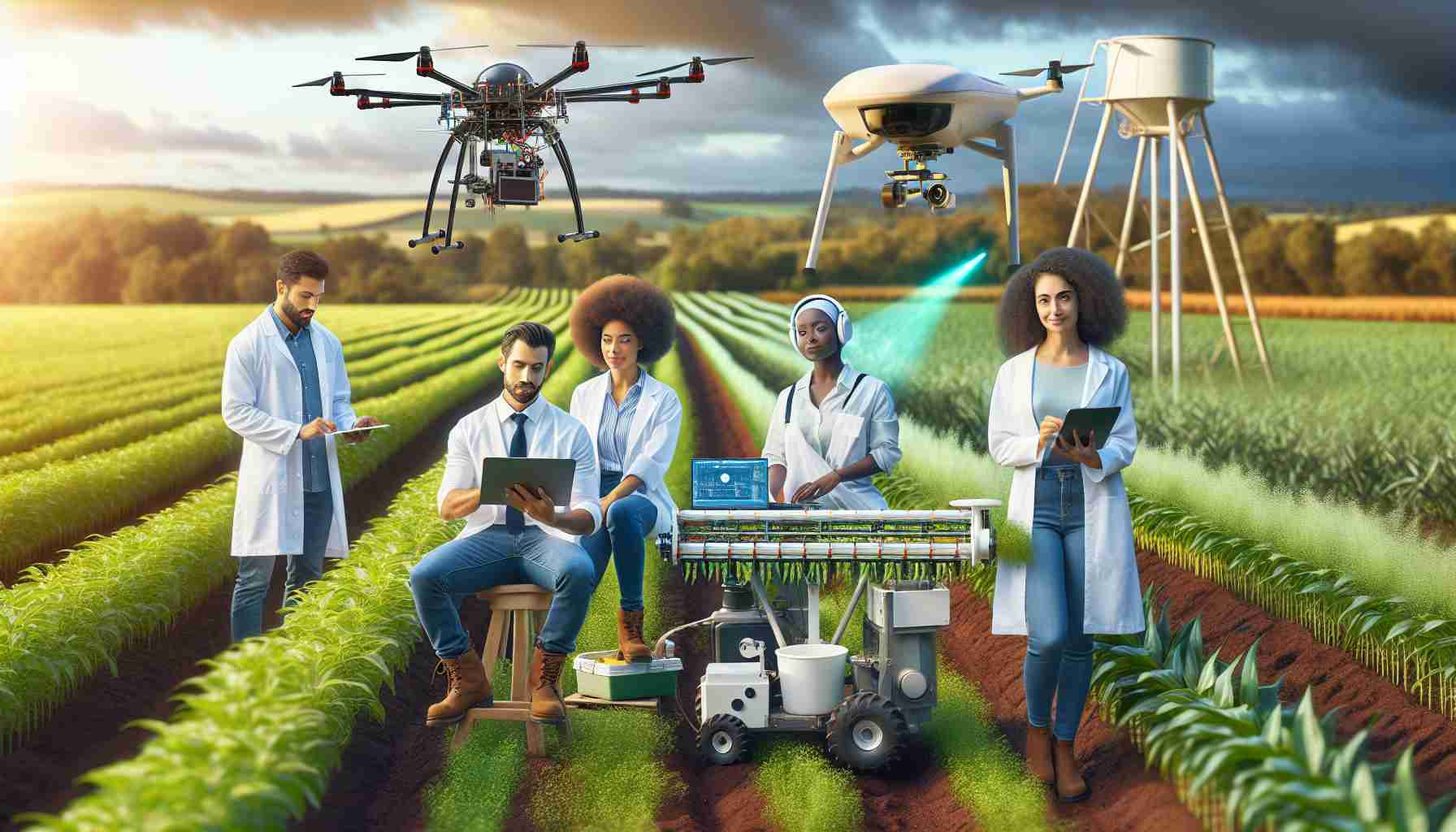Exciting Developments in Farm Technology
This week has brought significant news in the agriculture technology sector. Deere & Co., a leader in farm equipment, is set to join forces with six innovative agtech startups in 2025. This collaboration aims to harness cutting-edge technologies that promise to transform farming practices, enhancing efficiency and sustainability.
In another noteworthy announcement, Google is taking bold steps towards environmental responsibility by securing two biochar carbon credit agreements. These initiatives highlight the company’s commitment to sustainable practices and carbon reduction, further integrating technology with eco-friendly agricultural solutions.
The upcoming partnership between Deere & Co. and the startups is expected to introduce groundbreaking tools designed to address the evolving challenges faced by farmers today. From precision agriculture to advanced data analytics, these technologies will provide farmers with leading-edge resources to optimize their crop yields and manage resources more effectively.
Meanwhile, Google’s involvement in biochar carbon credit deals showcases the increasing intersection of technology and environmental stewardship. Biochar, derived from organic materials, is recognized for its ability to sequester carbon while enriching soil health, thus promoting a more sustainable approach to farming.
These developments signal a promising trajectory for the agricultural sector, where technology and sustainability will play crucial roles in shaping the future of farming. Stay tuned as these exciting initiatives unfold!
Impacts Beyond the Farm: The Broader Implications of AgTech Innovations
The advancements in agricultural technology, as exemplified by the partnership between Deere & Co. and various agtech startups, are not solely a boon for farmers but resonate throughout society and the global economy. Such collaborations may lead to increased food security by improving agricultural output, a critical advantage in a world where the population is projected to reach nearly 10 billion by 2050. As enhancing yield becomes imperative, communities globally could stand to benefit from reduced hunger and improved nutritional access.
Furthermore, these technology-driven efficiencies could revolutionize the workforce landscape in rural areas. As automation and data analysis become commonplace in farming, workers may need to pivot toward tech-oriented roles, creating a demand for education and training programs focused on digital skills. This shift could catalyze cultural changes, fostering a narrative around technological literacy as essential for future generations.
Environmental sustainability also remains at the forefront of these developments. Google’s engagement with biochar carbon credits not only addresses climate change by sequestering carbon but also underscores an emerging trend in corporate responsibility where major tech players acknowledge their role in enhancing ecological systems. As these practices are adopted more widely, we may witness a reimagined relationship between technology and natural resources, promoting regenerative agricultural methods that mitigate land degradation and improve biodiversity.
In the long term, the integration of such innovations suggests a future where agriculture is synonymous with sustainability, efficiency, and resilience—key factors that will influence both economic policies and cultural narratives around food production.
Revolutionizing Agriculture: The Future of Farm Technology is Here!
Innovations in Farm Technology
Recent advancements in farm technology are paving the way for a more efficient and sustainable agricultural future. With collaborations and innovative approaches, key players in the agriculture sector are poised to address pressing challenges facing farmers today.
Collaboration of Deere & Co. and Agtech Startups
In 2025, Deere & Co. will partner with six promising agtech startups to revolutionize their farming practices. This strategic alliance is expected to foster the development of precision agriculture tools and advanced data analytics systems. Such technologies aim to optimize crop yields and enhance resource management, ensuring that farmers can meet the rising global food demands while maintaining sustainable practices.
Key Features of the Collaboration:
– Precision Agriculture: Enhanced tools will enable farmers to monitor crop health and soil conditions more effectively.
– Data Analytics: Advanced analytics will allow for real-time decision-making, improving operational efficiency.
Google’s Commitment to Sustainability
Google is stepping up in the agricultural technology sector with its recent investment in biochar carbon credit agreements. By focusing on environmentally responsible practices, the tech giant is encouraging sustainable farming methods.
Benefits of Biochar:
– Soil Enrichment: Biochar improves soil health and fertility, leading to better crop growth.
– Carbon Sequestration: It captures and stores carbon dioxide, contributing to climate change mitigation.
Use Cases for Advanced Agriculture Technologies
1. Monitoring Crop Health: Farmers can use drones equipped with sensors to gather data on crop health, which can then be analyzed for actionable insights.
2. Resource Management: Soil moisture sensors can optimize irrigation, conserving water and reducing costs.
3. Predictive Analytics: Utilizing big data, farmers can predict weather patterns and market trends, allowing them to plan more effectively.
Challenges and Limitations
Despite the promising advancements, the integration of new technologies in agriculture is not without challenges.
– High Initial Costs: Advanced technologies can require significant upfront investment, which may discourage small-scale farmers.
– Technological Adoption: There is often resistance to change within the farming community, necessitating education and training.
Pricing and Market Insights
The pricing of agricultural technologies varies widely based on features and functionalities. However, the long-term benefits, such as improved yield and reduced operational costs, often outweigh the initial expenses. As the agricultural technology market continues to grow, it is projected to reach approximately $22.5 billion by 2028, highlighting the increasing demand for innovative solutions.
Future Trends in Agricultural Technology
– Increased Automation: With advancements in robotics, the automation of farming tasks such as planting and harvesting is expected to rise significantly.
– Sustainability Integration: Technologies will increasingly incorporate sustainability metrics, allowing farmers to monitor their environmental impact in real-time.
Conclusion
The convergence of technology and agriculture presents a transformative opportunity for the farming industry. With leaders like Deere & Co. and Google embracing innovative practices, the future of farming looks bright, aiming for increased efficiency and sustainability.
Stay updated with further developments in this exciting field at Deere & Co. and Google.
